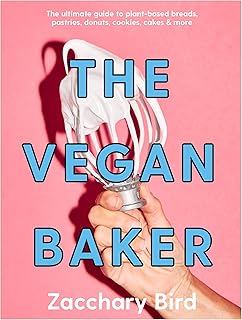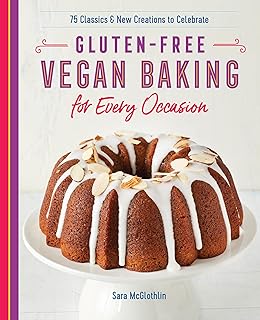Vegan baking has come a long way, offering a plethora of plant-based alternatives and recipes that cater to a diverse range of tastes and dietary needs. For those who have ventured into the world of vegan baking, the journey often starts with a desire to recreate traditional baked goods without animal products. The transition from vegetarian to vegan can be challenging, especially when it comes to baked treats like cakes, tarts, and pies.
Over the years, as plant-based diets gained popularity and more resources became available, the landscape of vegan baking evolved. With cookbooks like Veganomicon and Vegan Cupcakes Take Over the World paving the way, home bakers began experimenting with egg substitutes, butter swaps, and pantry essentials to create delicious vegan versions of their favorite treats.
One of the key aspects of successful vegan baking is understanding how to substitute ingredients effectively. Choosing the right recipe is crucial, as certain baked goods are more conducive to vegan adaptations than others. Cakes, muffins, brownies, loaves, and cookies are excellent starting points for those looking to experiment with vegan baking, as they lend themselves well to ingredient substitutions.
When it comes to replacing eggs in vegan baking, a variety of options are available, ranging from plant-based yogurt and flaxseed to aquafaba and silken tofu. Each egg substitute serves a different purpose, whether it’s binding, leavening, or adding moisture and texture to the final product. Experimenting with different egg replacers can help home bakers discover new flavors and textures in their vegan creations.
Choosing the right fat is another essential element in vegan baking. While traditional butter has long been a staple in baking, plant-based alternatives like coconut oil, olive oil, and vegan butter offer a flavorful and versatile alternative. Understanding the role of fat in baking and how different oils and butters behave can help home bakers achieve the desired texture and taste in their vegan treats.
Sweetness plays a crucial role in baking, and finding vegan-friendly sweeteners is key to creating delicious desserts. Organic cane sugar, coconut sugar, maple syrup, and other unrefined sweeteners offer a natural and flavorful alternative to traditional sugars processed with bone char. Experimenting with different sweeteners can add depth and complexity to vegan baked goods.
Experimentation is at the heart of successful vegan baking. Being open to trying new ingredients and techniques can lead to unexpected flavor combinations and innovative recipes. While not every experiment may turn out as planned, each attempt provides valuable insights and learning opportunities for home bakers looking to expand their vegan baking repertoire.
Building a well-stocked vegan pantry is essential for successful baking. Having a variety of plant-based ingredients on hand, such as alternative flours, nondairy milk, nut butter, and vegan egg replacers, ensures that home bakers can easily adapt recipes to suit their dietary preferences. With a stocked pantry, the possibilities for vegan baking are endless.
In conclusion, vegan baking offers a creative and rewarding outlet for home bakers looking to explore plant-based alternatives and experiment with new flavors and textures. By following these key tips and embracing the art of vegan baking, individuals can discover a world of delicious possibilities in the realm of cruelty-free desserts.
📰 Related Articles
- Vegan YouTuber Embraces Plant-Based Protein Challenge
- Top Vegan Snacks for Summer 2025: Delicious, Sustainable, and Nutritious
- Mastering Wedding RSVPs: Tips for Timely Responses and Etiquette
- Mastering Stylish Summer Workwear: Expert Tips for Professional Women
- Mastering Sports Betting Terminology: Essential Tips for Success






